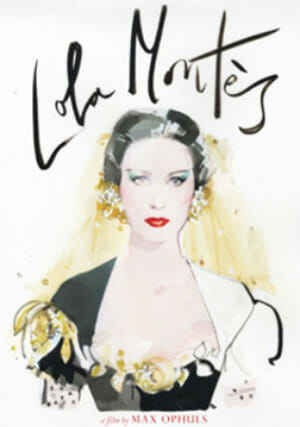Lola Montès DVD

Release Date: Feb. 16
Director: Max Ophuls
Writers: MaxOphuls, Cécil Saint-Laurent, Annette Wademant
Cinematographers: Christian Matras
Starring: Martine Carol, Peter Ustinov
Studio/Run Time: Criterion, 115 mins.
Way back in the early 2000s, the films of German-born, Paris-based director Max Ophuls languished out of print. While the French nouvelle vague and its insouciant modernity, guns, dames and jittery jump cuts remained much feted, discussed and repackaged, Ophuls and his fin de siècle Europe, aristocratic mores, women on the verge of nervous breakdowns and loooooong tracking shots fell out of sight. He might’ve remained in darkness were it not for the support of admiring directors like Stanley Kubrick, Todd Haynes and P.T. Anderson, and The New Yorker’s Anthony Lane, who raved that “the atmosphere in [Ophuls’] movies is so congenial, and the brilliance so lightly worn, that we may not notice how acutely he is laying bare our illusions.”
-

-

-

-

-

-

-

-

-

-

-

-

-

-

-

-

-

-

-

-

-

-

-

-

-

-

-

-

-

-

-

-

-

-

-

-

-

-

-

-








































